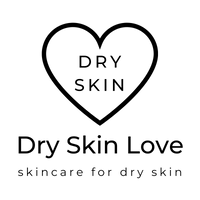Orange essential oil is one of the most popular aromas - it is delicately sweet and tangy, and smells like fresh cut oranges.
Orange essential oil is commonly used in skincare products and it is safe for most people to use, when it is properly diluted.
Old or oxidized orange essential oil may cause irritation in people with dermatitis or other skin issues.
Overview
- What is orange essential oil?
- Why is orange essential oil used in skincare?
- Is orange essential oil safe?
- How to formulate skincare safely with orange essential oil
- Who should avoid orange essential oil?
- Summary
- References

What is orange essential oil?
Orange essential oil, also known as sweet orange essential oil, is extracted from the peels of the orange Citrus sinensis.
The aroma of orange essential oil is delicately sweet and tangy, and smells like fresh cut oranges.
Orange essential oil is composed of ~95% D-limonene and other minor compounds, including beta-myrcene, linalool, alpha-pinene, sabinene and others.

Why is orange essential oil used in skincare?
Orange essential oil is used in skincare for aroma, color, cleansing activity, antioxidant activity and as a permeation enhancer.
1. Aroma
Orange essential oil smells delicately sweet and tangy with the aroma of fresh cut juicy oranges.
As orange essential oil ages and oxidizes, the aroma fades. So fresher orange essential oil smells the best. You can almost smell the sparkles in very fresh orange essential oil!
Orange essential oil is in the citrus aroma family, and is considered a top or a head note in perfumery.
Orange essential oil smells great on its own, but it also blends well with other aromas, especially other citrus essential oils like bergamot, grapefruit and neroli blossom. It can add sweetness to formulas, and help smooth out harsh aromas.
Orange and lavender, orange and ylang ylang, and orange and patchouli, are classic combos that seem to make everything smell better.
Orange essential oil can also be used as a masking agent, and cover-up unpleasant odors.
The aroma of orange essential oil is very calming, and smelling orange essential oils may reduce anxiety and improve mood (Goes et al, 2012; Jafarzadeh et al, 2013; Lehrner et al, 2000; Lehrner et al, 2005; Rashidi-Fakari et al, 2015).
2. Color
Orange essential oil has a yellow-orange color and can add a subtle yellow to orange hue to skincare products, depending on the amount added.
3. Cleansing activity
Orange essential oil is composed of ~95% D-limonene, which is used as a cleanser and a degreaser. Limonene is used as a solvent in water-free hand-cleansers at a concentration of about 10% (Karlberg et al, 1997).
4. Antioxidant activity
Orange essential oil has antioxidant activity (González-Mas et al, 2019; Lin et al, 2021; Li et al, 2022), and may increase product shelf life (Xu et al, 2021). Limonene has also been shown to inhibit lipid oxidation, and is being investigated to extend shelf-life in food products (reviewed by Bora et al, 2020).
5. Permeation enhancer
Orange essential oil is made of ~95% D-limonene, which is a permeation enhancer (Mendanha et al, 2017) and can boost absorption of nutrients and active ingredients (Valgimigli et al, 2012).

Is orange essential oil safe?
Citrus essential oils are non-toxic, non-mutagenic, and non-carcinogenic (Tisserand et al, 2014; Dosoky 2018).
Orange essential oil has GRAS (generally recognized as safe) status. However, there is a possible skin sensitization issue if old or oxidized oil is used (Tisserand et al, 2014).
Expressed orange oil was neither irritating nor sensitizing to 25 volunteers when tested at 8 and 100% (Opdyke et al, 1974), whereas it caused sensitivity to 0.13% of total dermatitis patients when tested at 2% (Rudzki et al, 1976).
Orange essential oil is composed of ~95% D-limonene.
Pure limonene is safe for most people to use, when it is properly diluted.
Old or oxidized limonene may cause irritation in people with dermatitis or other skin issues.
Always choose fresh products and avoid the use of old or expired products that contain limonene.
Read more: Is Limonene safe for skin?

How to store orange essential oil
Temperature, light, and oxygen availability are recognized to have a crucial impact on essential oil integrity (reviewed by Turek et al, 2013).
During storage, orange essential oil can be protected from oxidation by several factors, including protection from light, heat and oxygen exposure.
To avoid oxidation of orange essential oil, citrus oils should be stored in a dark air-tight container and placed at 4◦C (Karlberg et al, 1994; Tisserand et al, 2014).
Cold and dark storage of d-limonene in closed vessels has been shown to prevent auto-oxidation for 1 year without addition of anti-oxidant (Karlberg et al, 1994).
However, adding antioxidants to orange essential oil is recommended (Karlberg et al, 1994; Tisserand et al, 2014).
Skincare products should be packaged in closed containers with pump lids to minimize air contact.

How to formulate safely with orange essential oil
There are several things to consider when formulating skincare products with orange essential oil.
Choose organic or wild essential oils
Most citrus crops are heavily sprayed with pesticides (Fillâtre et al, 2017). Wild-grown and organic citrus peel oils are preferred for use in aromatherapy and skincare since the insecticides used on citrus crops tend to accumulate in the outer peels and can be detected in the cold-pressed or distilled oils by GC-MS analysis.
Avoid old or expired essential oils
To reduce the risk of irritation, old, or expired orange essential oil should be avoided.
Properly dilute essential oils
Orange essential oil should always be properly diluted when used for skincare, with safety ranges suggested between 0.1 - 3%. Orange essential oil should never form more than 5% of the final cosmetic product, as this increases the risk of potential irritation.
Patch test essential oils
A patch test should be performed before use for those with sensitive skin.
Be careful with sun exposure
Essential oils obtained from Citrus sinensis do not contain any compounds responsible for photosensitization (Tisserand et a. 2014), however for those who have fair or sensitive skin to use this oil with caution before sun exposure.

Who should avoid orange essential oil?
People who are sensitive or allergic to limonene should avoid limonene, orange essential oil, and citrus essential oils.
People who have a disturbed or damaged skin barrier should avoid essential oils or use with caution, especially with leave-on products.

Summary
Orange essential oil is safe for most people to use, when it is properly diluted.
Old or oxidized orange essential oil may cause irritation in people with dermatitis or other skin issues.
Always choose fresh orange essential oil, and avoid the use of old or expired products that contain orange essential oil or limonene.
Choose organic or orange essential oil to limit exposure to pesticides.
Dry Skin Love Wild Orange Oil to Milk Cleanser is made with cold-pressed, orange essential oil that is wild grown in the Dominican Republic.
References
Bora H, Kamle M, Mahato DK, Tiwari P, Kumar P. Citrus Essential Oils (CEOs) and Their Applications in Food: An Overview. Plants (Basel). 2020 Mar 11;9(3):357.
Int J Mol Sci. 2018 Jul 5;19(7):1966.
Anal Chim Acta. 2017 Nov 1;992:55-66.
Goes TC, Antunes FD, Alves PB, Teixeira-Silva F. Effect of sweet orange aroma on experimental anxiety in humans. J Altern Complement Med. 2012 Aug;18(8):798-804.
Front Plant Sci. 2019 Feb 5;10:12.
Jafarzadeh M, Arman S, Pour FF. Effect of aromatherapy with orange essential oil on salivary cortisol and pulse rate in children during dental treatment: A randomized controlled clinical trial. Adv Biomed Res. 2013 Mar 6;2:10.
Karlberg AT, Magnusson K, Nilsson U. Influence of an anti-oxidant on the formation of allergenic compounds during auto-oxidation of d-limonene. Ann Occup Hyg. 1994 Apr;38(2):199-207.
Karlberg AT, Dooms-Goossens A. Contact allergy to oxidized d-limonene among dermatitis patients. Contact Dermatitis. 1997 Apr;36(4):201-6.
Lehrner J, Eckersberger C, Walla P, Pötsch G, Deecke L. Ambient odor of orange in a dental office reduces anxiety and improves mood in female patients. Physiol Behav. 2000 Oct 1-15;71(1-2):83-6.
Lehrner J, Marwinski G, Lehr S, Johren P, Deecke L. Ambient odors of orange and lavender reduce anxiety and improve mood in a dental office. Physiol Behav. 2005 Sep 15;86(1-2):92-5.
Li C, Cai Q, Wu X, Tan Z, Huang S, Wei C, Zhang W, Chen Z, Zhang L, Xiang H. Variation in Compositions and Biological Activities of Essential Oils from Four Citrus Species: Citrus limon, Citrus sinensis, Citrus paradisi, and Citrus reticulata. Chem Biodivers. 2022 Apr;19(4):e202100910.
Molecules. 2021 Jun 4;26(11):3412.
Mendanha SA, Marquezin CA, Ito AS, Alonso A. Effects of nerolidol and limonene on stratum corneum membranes: A probe EPR and fluorescence spectroscopy study. Int J Pharm. 2017 Oct 30;532(1):547-554.
Opdyke, D.L.J. Monographs on fragrance raw materials. Food Cosmet. Toxicol. 1974, 12, 807–1016.
Rashidi-Fakari F, Tabatabaeichehr M, Mortazavi H. The effect of aromatherapy by essential oil of orange on anxiety during labor: A randomized clinical trial. Iran J Nurs Midwifery Res. 2015 Nov-Dec;20(6):661-4.
Rudzki, E., Grzywa, Z., Bruo, W.S. Sensitivity to 35 essential oils. Contact Dermat. 1976, 2, 196–200.
Tisserand, R., Young, R. Essential Oil Safety, 2nd ed.; Elsevier: New York, NY, USA, 2014.
Turek C, Stintzing FC. Stability of Essential Oils: A Review. Comprehensive Reviews in Food Science and Food Safety. 2013 Jan;3:40-53.
Valgimigli L, Gabbanini S, Berlini E, Lucchi E, Beltramini C, Bertarelli YL. Lemon (Citrus limon, Burm.f.) essential oil enhances the trans-epidermal release of lipid-(A, E) and water-(B6, C) soluble vitamins from topical emulsions in reconstructed human epidermis. Int J Cosmet Sci. 2012 Aug;34(4):347-56.
Food Chem. 2021 Sep 1;355:129508.

Author Information

Dr. Natasha Ryz is a scientist, skin care expert and an entrepreneur. She is the founder of Dry Skin Love Skincare, and she creates skincare products for beauty, dry skin and pain relief.
Dr. Ryz has a PhD in Experimental Medicine from the University of British Columbia in Vancouver, and she is a Vanier scholar. She also holds a Master of Science degree and a Bachelor of Science degree from the University of Manitoba in Winnipeg.
Natasha is the former Chief Science Officer of Zenabis Global, and she oversaw cannabis extraction, analytics, and product development. Her team brought 20 products to market including oils, sprays, vapes and softgels.
Why I Started A Skincare Company

